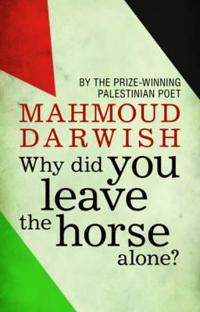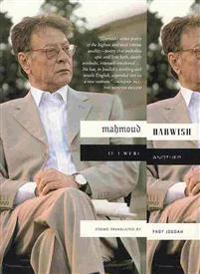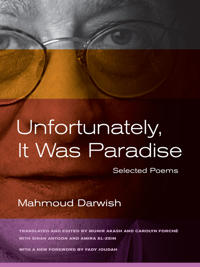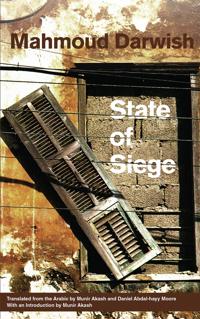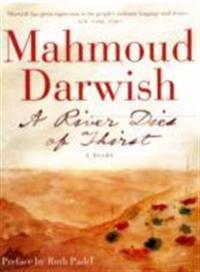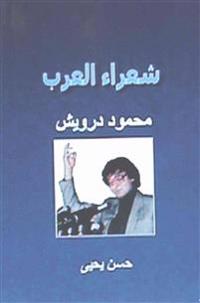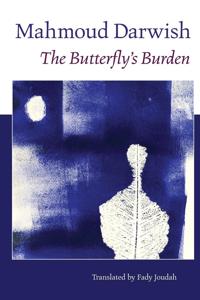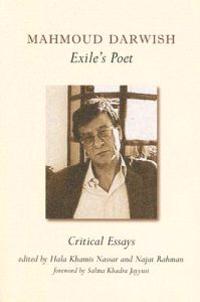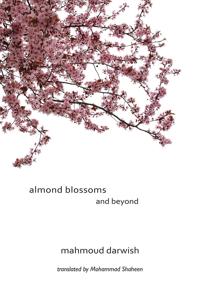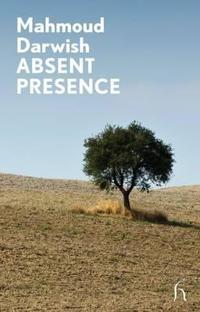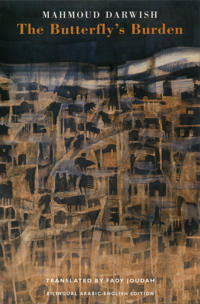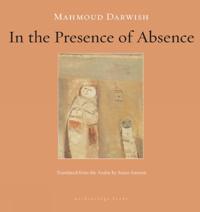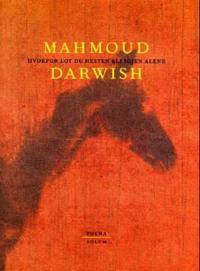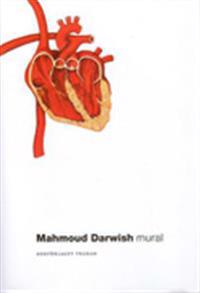Why Did You Leave the Horse Alone? (Pocket)
avMahmoud Darwish, Mohammad (TRN) Shaheen, Mahmoud Darwish
ISBN: 9781843915195 - UTGIVEN: 2014-11Since Mahmoud Darwish's death in 2008 his poetic writings continue to be read by an audience in awe. Why Did You Leave the Horse Alone? is a collection of autobiographical poetry designed to give an insight into the wider human condition. Darwish's writing explores the meaning of life, identity and[...]
Unfortunately, it Was Paradise (Häftad)
avMahmoud Darwish
ISBN: 9780520273030 - UTGIVEN: 201304Mahmoud Darwish is a literary rarity: at once critically acclaimed as one of the most important poets in the Arabic language, and beloved as the voice of his people. A legend in Palestine, his lyrics are sung by fieldworkers and schoolchildren. He has assimilated some of the world's oldest literary [...]
Memory For Forgetfulness (Pocket)
avMahmoud Darwish
ISBN: 9780520273047 - UTGIVEN: 2013-06-21What is the meaning of exile? What is the role of the writer in time of war? What is the relationship of writing (memory) to history (forgetfulness)? This title offers an extended reflection on the invasion and its political and historical dimensions.[...]
Mahmoud Darwish
ISBN: 9780815633617 - UTGIVEN: 2014-05In Mahmoud Darwish: The Poet's Art and His Nation, Mattawa pays tribute to one of the most celebrated and well-read poets of our era. With detailed knowledge of Arabic verse and a firm grounding in Palestinian history, Mattawa explores the ways in which Darwish's aesthetics have played a crucial rol[...]
River Dies of Thirst (Pocket)
avMahmoud Darwish
ISBN: 9780863566349 - UTGIVEN: 2010-05Mahmoud Darwish is one of the most acclaimed contemporary poets in the Arab world, and is often cited as the poetic voice of the Palestinian people. During the summer of 2006, Darwish was in Ramallah. He recorded his observations and feelings in this diary as Israel attacked Gaza and Lebanon. Darwis[...]
Why Did You Leave the Horse Alone (Häftad)
avMahmoud Darwish
ISBN: 9780976395010 - UTGIVEN: 2010-02At once an intimate autobiography and a collective memory of the Palestinian people, Mahmoud Darwish's interlinked poems are collective cries, songs, and glimpses of the human condition. The collection-widely considered his "chef-d'oeuvre-is a poetry of myth and history, of exile and suspended time,[...]
The Butterfly's Burden (Häftad)
avMahmoud Darwish
ISBN: 9781556592416 - UTGIVEN: 200701"Mahmoud Darwish is the Essential Breath of the Palestinian people, the eloquent witness of exile and belonging, exquisitely tuned singer of images that invoke, link, and shine a brilliant light into the world's whole heart. What he speaks has been embraced by readers around the world--his in an utt[...]
Mahmoud Darwish, Exile's Poet: Critical Essays (Häftad)
avHala Khamis Nassar, Najat Rahman, Salma Khadra Jayyusi
ISBN: 9781566566643 - UTGIVEN: 2007-10Mahmoud Darwish's work has long been considered seminal in shaping modern Arabic poetry. He has received wide international recognition and is a likely candidate for the Nobel Prize. Often deemed the 'Poet of the Resistance', no substantial critical study exists that addresses the complexity of Darw[...]
Mahmoud Darwish
ISBN: 9781784530716 - UTGIVEN: 2016-08Mahmoud Darwish is the poet laureate of the Palestinian national struggle. His poems resonate across the entire Arab world and, more than any other single figure perhaps since the death of Yasser Arafat, he represents a unifying figurehead for Palestinian national aspirations. In this, the first c[...]
Absent Presence (Storpocket)
avMahmoud Darwish
ISBN: 9781843914600 - UTGIVEN: 201010Award-winning Palestinian poet and author Mahmoud Darwish has been hailed the most important Arab poet of the modern age, his reputation only increasing since his death in 2008, his work coming to represent the voice of a generation and of a people. Comparisons have been drawn between his work and t[...]
The Butterfly's Burden (Häftad)
avMahmoud Darwish
ISBN: 9781852247881 - UTGIVEN: 2007-11Mahmoud Darwish is the poetic voice of the Palestinian people. One of the most acclaimed contemporary poets in the Arab world, he is also a prominent spokesman for human rights who has spent most of his life in exile. Returning to Palestine in 1996, he settled in Ramallah, where he surprised his hug[...]
In the Presence of Absence (Häftad)
avMahmoud Darwish
ISBN: 9781935744016 - UTGIVEN: 201111"Darwish is to be read with urgency, in the night, when nothing else moves but his lines." --"The Village Voice"By one of the most transcendent poets of this generation, a remarkable collection of prose poems that explores themes of love, pain, isolation, and connection. In this self-eulogy written [...]
Hvorfor lot du hesten bli igjen alene (Inbunden)
avMahmoud Darwish
ISBN: 9788256013722 - UTGIVEN: 2002Diktene har flukt, fravær og fremmedfølelse som motiver, og dikteren dras mellom trass og bitter resignasjon.[...]
Mural samt Kurden har ingenting utom vinden (Inbunden)
avMahmoud Darwish
ISBN: 9789185133161 - UTGIVEN: 200609Mural är en bildrik episk dikt som erinrar om ett förislamiskt arabiskt ode. Den minner också om en dunkel väggmålning i något antikt tempel, där livet och döden, uppståndelsen och livet efter detta skildras i en myt; gudarna är mänskliga och människorna gudar. Eller också kan Mural lä[...]

